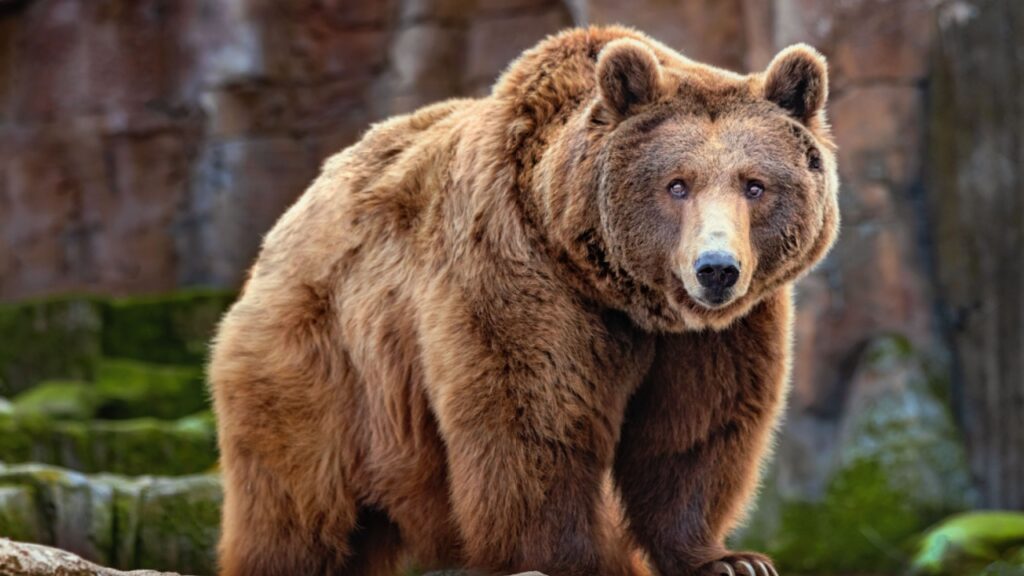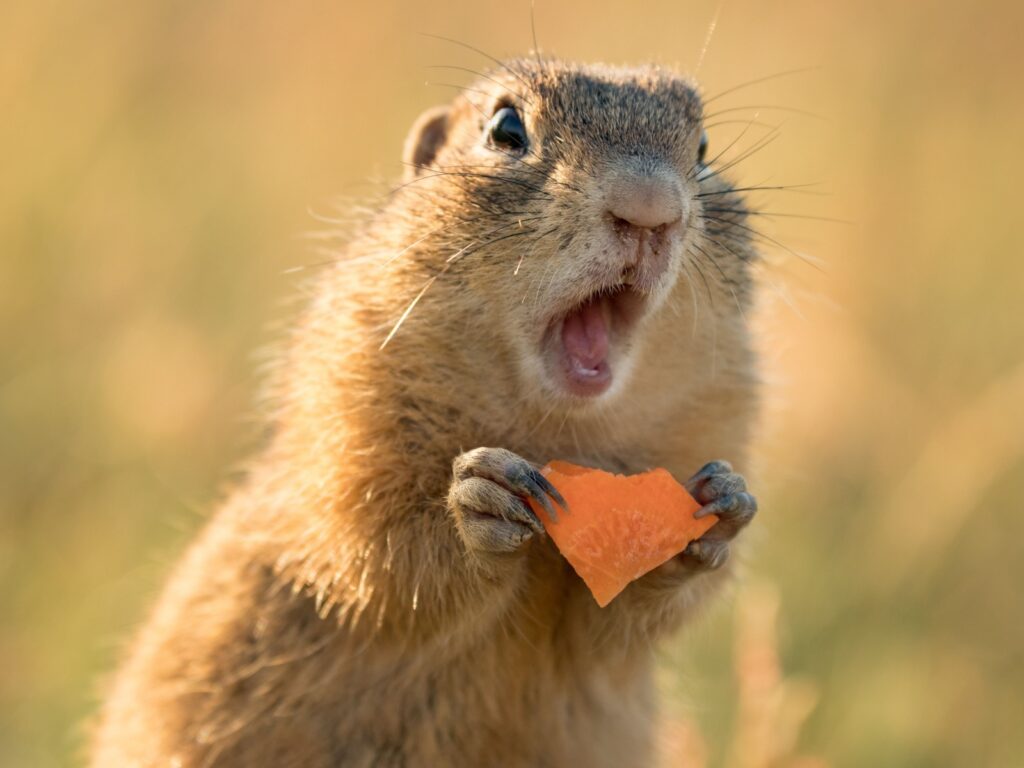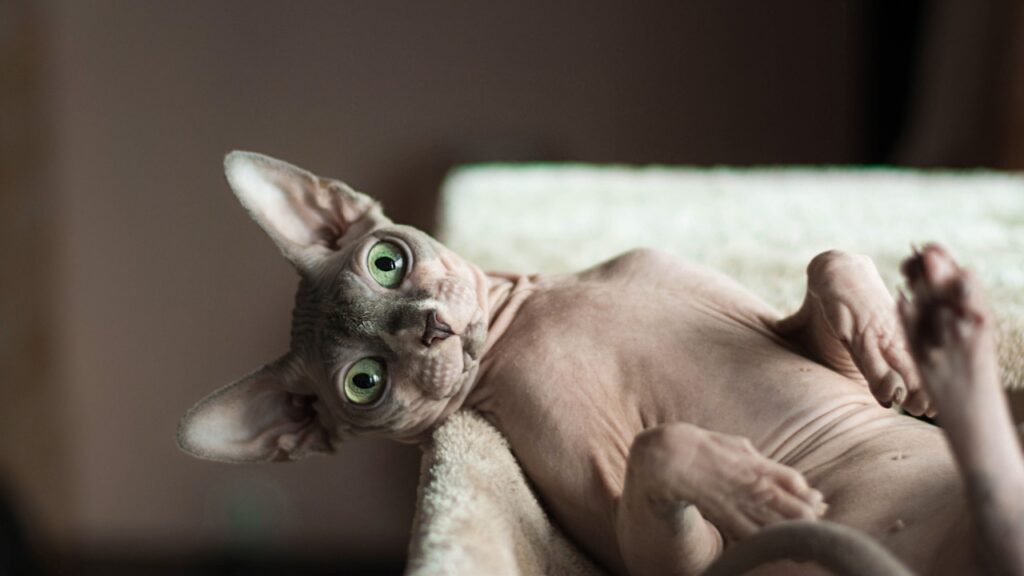Grizzly bears are known for their fierce power and intimidating presence. However, in the wild, there are some surprising contenders that can hold their own against these mighty mammals. Let’s explore ten animals that have what it takes to face off with a grizzly bear.
African Elephant

The African elephant is the largest land animal on Earth, dwarfing even the biggest grizzly bear. An adult African elephant can easily outmatch a grizzly bear in size and strength. With their massive tusks and powerful trunks, elephants can deliver devastating blows. Their thick skin also provides excellent protection against a bear’s claws and teeth. In a face-off, the elephant’s sheer size and power would likely send even the toughest grizzly running for cover.
Hippopotamus
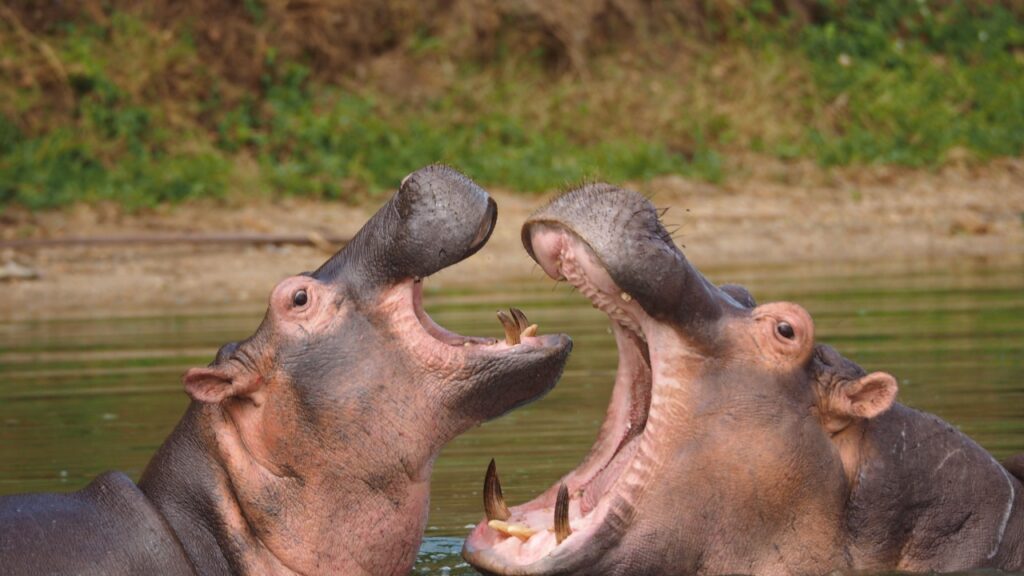
Don’t let their chubby appearance fool you – hippos are incredibly dangerous animals. These semi-aquatic giants are fiercely territorial and have been known to attack boats and people without provocation. A hippo’s massive jaws can exert tremendous force, easily capable of crushing a grizzly bear. Their thick skin and aggressive nature make them formidable opponents. In a water-based encounter, a hippo would have a significant advantage over a grizzly bear.
Polar Bear

While grizzlies are impressive, their Arctic cousins take things up a notch. Polar bears are generally larger and more aggressive than grizzlies. They’re built for harsh environments and are skilled hunters both on land and in water. A polar bear’s powerful build and sharp claws would give it an edge in a fight with a grizzly. Their thick layer of blubber also provides protection against attacks.
Rhinoceros
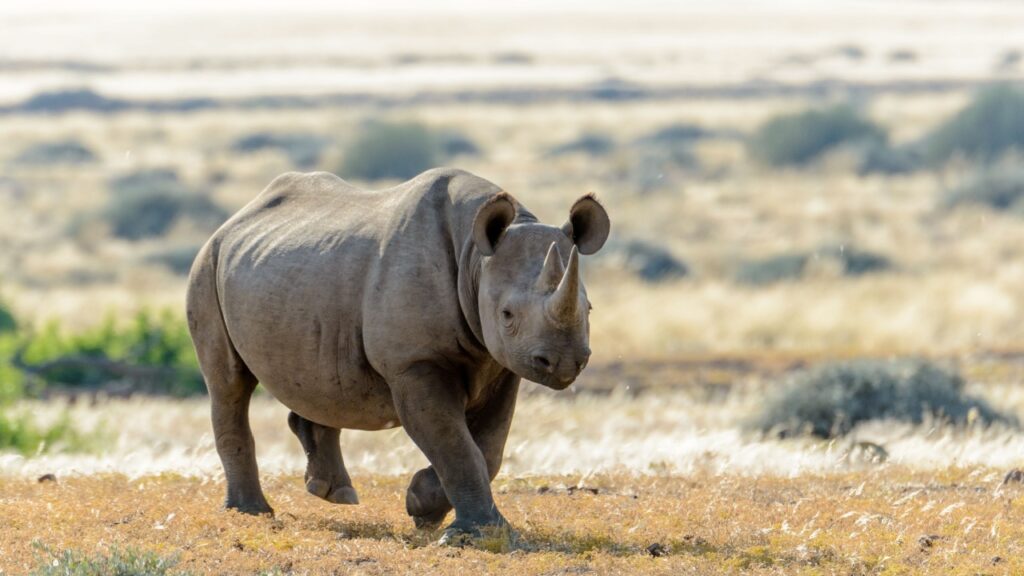
A rhinoceros, with its armored skin and massive horn, is built like a tank. These prehistoric-looking creatures can weigh up to 3,000 pounds and can charge at speeds of up to 35 miles per hour. A rhino’s thick hide would be difficult for a grizzly to penetrate with its claws or teeth. The rhino’s horn, which can grow up to 5 feet long, is a formidable weapon that could seriously injure or even kill a grizzly bear.
Saltwater Crocodile
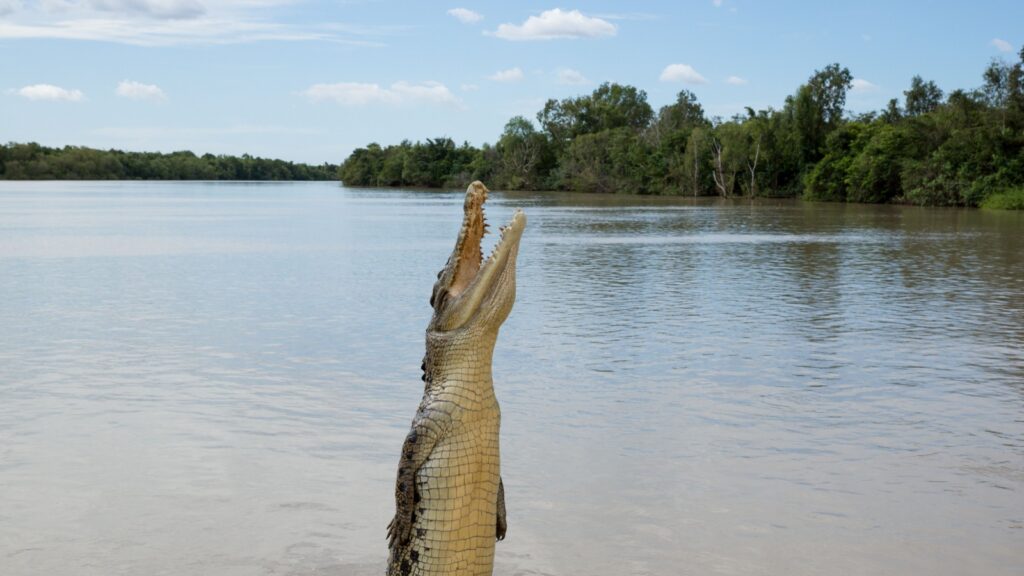
In a water-based encounter, a saltwater crocodile would be a terrifying opponent for a grizzly bear. These ancient reptiles can grow up to 23 feet long and weigh over 2,000 pounds. Their powerful jaws exert the strongest bite force of any animal on Earth. A saltwater crocodile’s scaly armor provides excellent protection, and its ability to death roll would give it a significant advantage in water.
Tiger
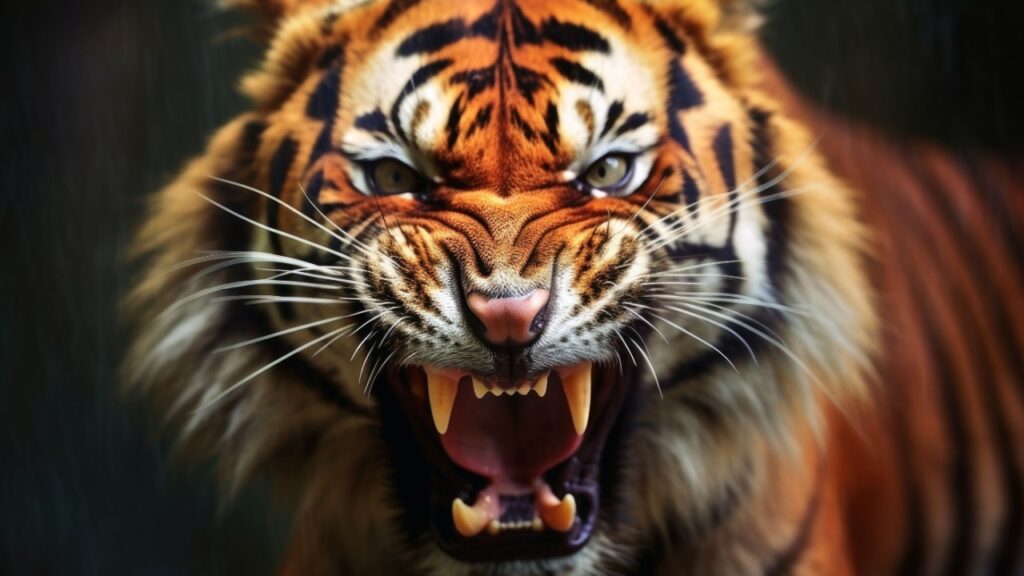
While a tiger might not always win against a grizzly, it certainly has the tools to put up a fierce fight. Tigers are agile, powerful, and equipped with sharp claws and teeth. They’re also intelligent hunters with excellent stealth skills. A tiger’s speed and agility could allow it to strike quickly and retreat, potentially wearing down a grizzly over time. In dense forest environments, a tiger’s camouflage and stalking abilities would give it an additional edge.
Moose
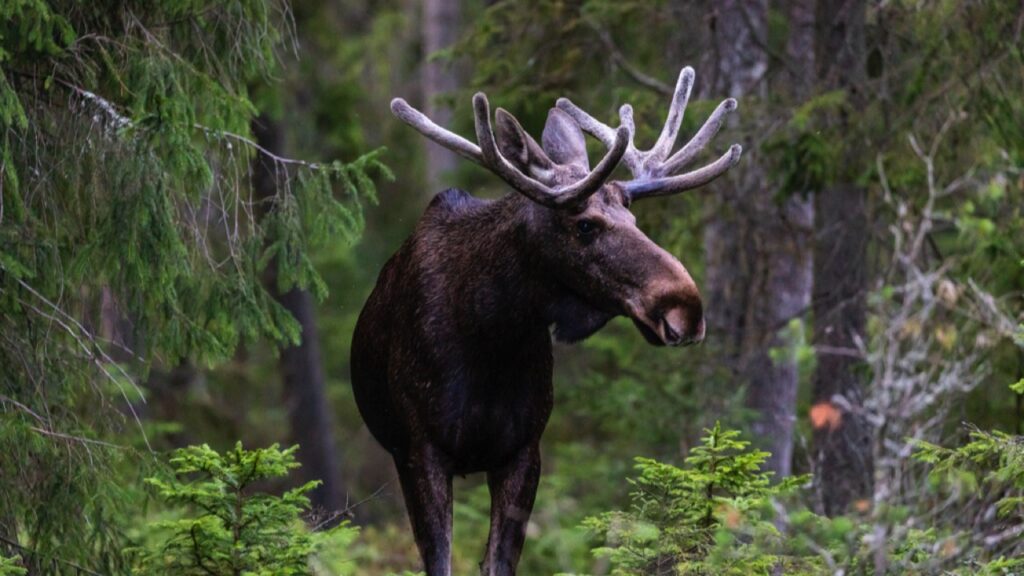
Moose might seem like unlikely contenders, but these massive deer are no pushovers. Adult moose can weigh up to 1,500 pounds and stand over 6 feet tall at the shoulder. Their enormous antlers serve as both weapons and shields. Moose are known for their aggressive behavior, especially during mating season. They’ve been observed standing their ground against bears and even chasing them off. A moose’s powerful kicks could seriously injure a grizzly bear.
Orca
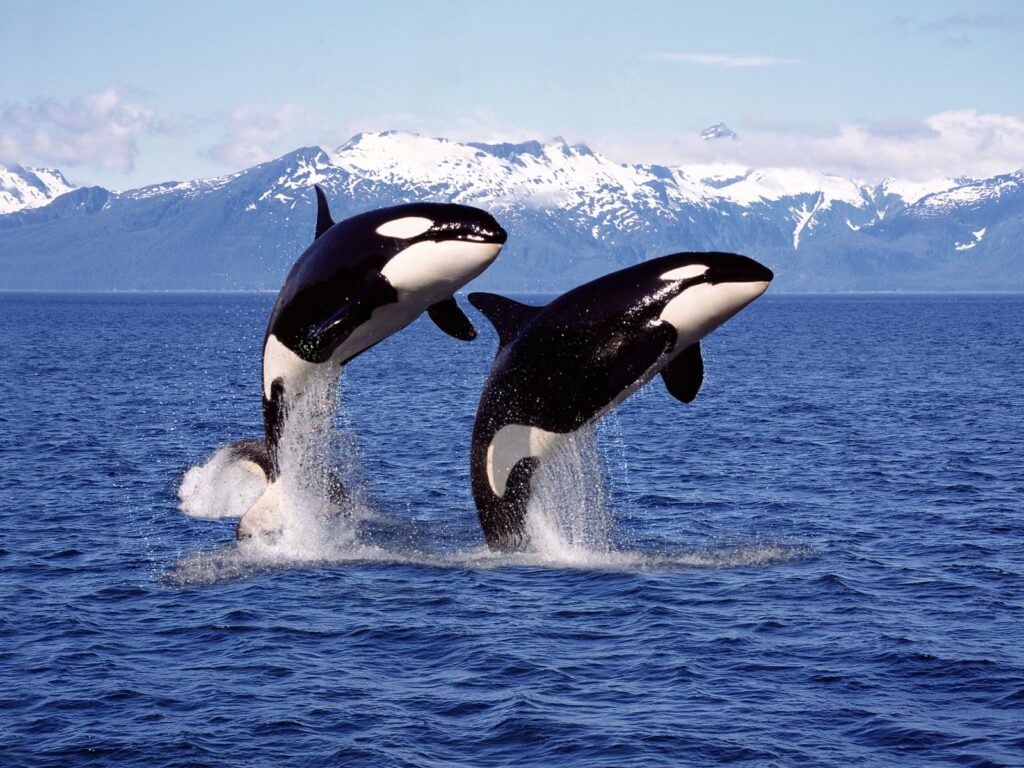
In an aquatic setting, an orca, or killer whale, would reign supreme over a grizzly bear. These intelligent marine mammals are apex predators known for taking down great white sharks. Orcas hunt in pods and use sophisticated strategies to overpower their prey. Their powerful tails can deliver bone-crushing blows, and their teeth are designed for ripping flesh. In water, a grizzly bear would be completely outmatched by an orca’s speed, strength, and hunting prowess.
Wolverine
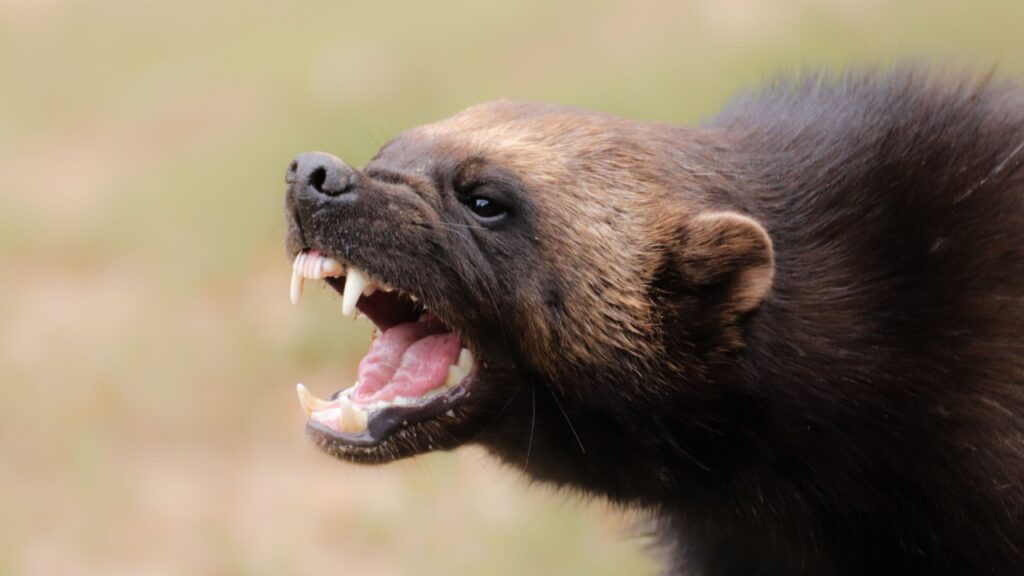
Don’t let its small size fool you – the wolverine is pound-for-pound one of the toughest animals in North America. These muscular members of the weasel family are known for their ferocity and have been observed driving bears away from kills. Wolverines have incredibly strong jaws and sharp claws, and they’re covered in thick, oily fur that protects them from the cold and from bites. While a wolverine might not win in a direct fight with a grizzly, its aggressive nature and tenacity allow it to stand its ground.
Humans

While not physically imposing compared to a grizzly bear, humans have proven to be the most dangerous opponents for these massive mammals. Our intelligence, tool use, and ability to work in groups give us a significant advantage. Humans have developed various methods to deter and defend against bear attacks, from bear spray to firearms. Moreover, human activities like habitat destruction and hunting have had a far greater impact on grizzly populations than any other animal. While we should respect and protect these magnificent creatures, it’s clear that humans have the capacity to overcome even the mightiest of bears.
Becky is a fervent wildlife enthusiast and pet care expert with a diploma in canine nutrition. Her love for animals stretches beyond the domestic, embracing the wild tapestry of global fauna. With over a decade of experience in animal welfare, Becky lends her expertise to OutlandishOwl through insightful articles, captivating wildlife information, and invaluable guidance on pet nutrition. Her work embodies a deep commitment to understanding the intricate lives of animals and a passion for educating others on sustaining natural habitats. Becky's hands-on conservation efforts and her knack for translating complex dietary science into practical pet feeding tips make her an indispensable voice for creatures great and small.

